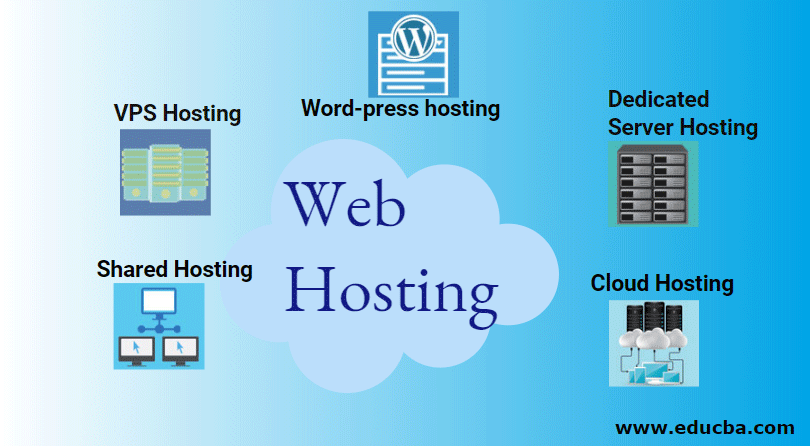What Makes up Cloud Hosting Essential for Online Businesses
In today's online environment, the prosperity of a business often hinges on its online presence. As more customers looking to the internet for products and services, having a dependable web hosting solution is essential. As companies work to improve their digital capability, cloud hosting has emerged as an important resource. It provides the adaptability, scalability, and efficiency that modern digital enterprises require to thrive in a competitive landscape.
Cloud hosting allows businesses to utilize a system of servers in the cloud, ensuring that their website remains accessible and responsive to user demands. This transition from traditional hosting methods not only enhances functional efficiency but also allows organizations to adjust quickly to changing needs. Using web hosting uae , organizations can concentrate on expansion and innovation, allowing the challenges of infrastructure maintenance to their hosting provider.
Scalability and Agility
One of the notable features of cloud hosting is its remarkable scalability. In the modern fast-paced digital landscape, businesses often experience fluctuating traffic levels. Cloud hosting allows companies to simply scale their resources up or downward based on existing demands. This means that during busy times, such as a product launch or seasonal sale, businesses can allocate more resources without the need for expensive physical hardware upgrades. Conversely, in less active periods, they can reduce their resource usage, which helps in managing costs efficiently.
Customizability is another major benefit of cloud hosting. Businesses can choose from a variety of servicing options tailored to their specific needs. Whether it is a tiny or a big enterprise, cloud hosting can meet a wide range of requirements. Organizations can select the operating system, server configuration, and applications that best suit their workflow. This adaptability ensures that companies are not tied to a one-size-fits-all solution, allowing them to operate efficiently and innovate quickly.
Moreover, cloud hosting provides a platform for rapid deployment of applications and services. Since resources are available on demand, businesses can quickly launch new projects without the lengthy timelines associated with traditional hosting solutions. This agility empowers companies to respond to market changes and customer needs promptly, giving them a market advantage. With cloud hosting, businesses can focus more on progress and less on hardware, leading to a more efficient operational process.
Cost Efficiency
Cloud-based hosting significantly lowers the overall costs associated with legacy web hosting approaches. Businesses can steer clear of hefty upfront investments in physical hardware and related setup. Instead, they pay for services on a subscription basis, allowing for better cash flow management. This usage-based model means businesses only pay for what they utilize, scaling their hosting services as they increase.
Moreover, cloud hosting eliminates the costs related to upkeep and updates. Hosting companies take care of the core hardware and software, guaranteeing that businesses benefit from the most recent technology without added expenditures. This aspect is notably helpful for small and medium-sized businesses, as it allows them to dedicate funds to alternative critical areas, such as promotion and product development.
Finally, the flexibility of cloud hosting results in cost efficiency in other ways. Businesses can swiftly alter their utilization based on traffic fluctuations and business demands. This flexibility avoids over-provisioning, which can be costly, and inefficiency, making sure that organizations are charged for what they truly need. In a rapidly changing digital landscape, this adaptability is crucial for sustaining financial health and competitiveness.
Enhanced Security and Dependability
Cloud hosting provides improved security features that are essential for online enterprises. With security incidents becoming increasingly prevalent, companies must emphasize the protection of sensitive information. Cloud service providers often implement sophisticated security measures, including data encryption, firewalls, and intrusion detection systems, which help protect data against cyber threats. Additionally, the expertise of dedicated groups in these providers ensures continuous monitoring and timely improvements, minimizing vulnerabilities significantly.
Dependability is another key benefit of cloud services. Traditional web hosting can experience from downtime due to hardware failures or service maintenance. In contrast, cloud framework utilizes a network of linked servers, allowing for smooth failover and load balancing. This scattered framework ensures that even if one server faces an issue, the remaining servers can take over, providing uninterrupted service to users. As a result, online companies can maintain consistent accessibility, leading to improved user experiences and client happiness.

Furthermore, cloud services offer scalability that is tightly coupled with dependability. Businesses can quickly adapt to changing traffic demands without sacrificing performance. During busy periods, additional resources can be assigned dynamically, ensuring that websites run efficiently even with higher levels of traffic. This flexibility not only improves protection and reliability but also supports long-term expansion plans for companies in an ever-evolving digital landscape.